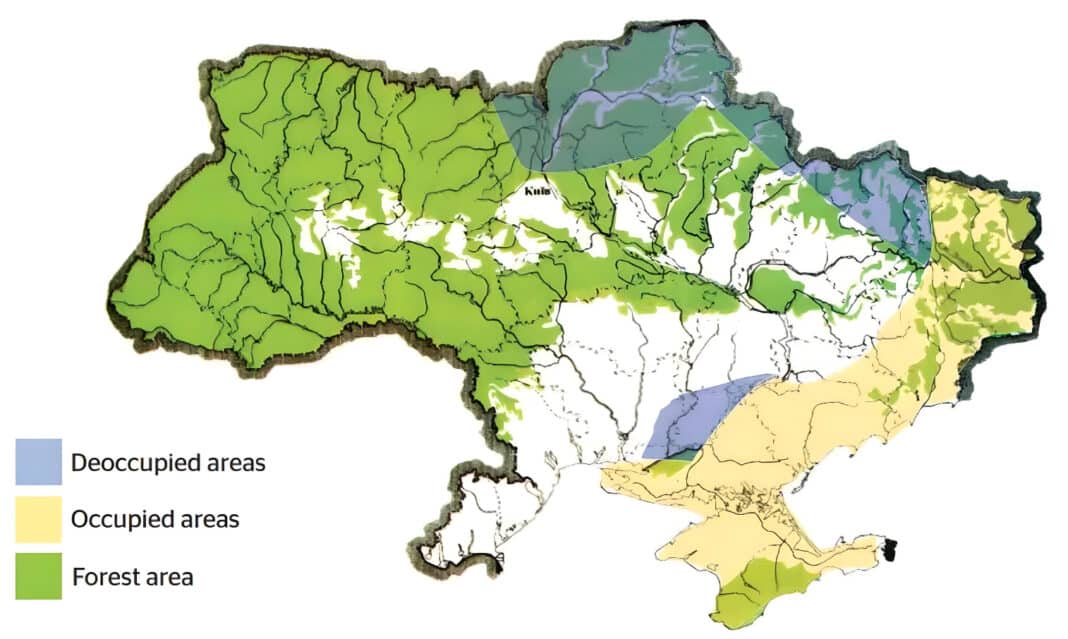The resilience of Ukraine’s forests in the face of sustained Russian invasion is remarkable. And whilst the forest remains a battleground for conflict, climate change exasperates its damage.
Nonetheless, with investment in education and science, it has the potential to become a global power for forest products.
That is the key takeaway from a Forum on Ukraine Forest Science and Education organised by IIASA, the National University of Life and Environmental Sciences of Ukraine (NUBiP), and the International Union of Forest Research Organizations (IUFRO).
It noted that since 1961, the forest cover has increased by 1.5 times and now covers 16.5% of total land cover.

“The forum brought together Ukrainian forestry students, early and mid-career forest researchers, and representatives of leading European universities and international institutions to discuss practical measures and strategic steps toward supporting sustainable forest management in Ukraine,” according to Forum Chair Sergiy Zibtsev.
“International collaboration in science and education is crucial to overcoming war and climate change challenges. When planning this forum, keeping in mind the background and missions of the host organisations NUBiP, IIASA, and IUFRO, a deliberate decision was therefore made to focus on forest research and education needs and priorities of Ukraine to address a gap in ongoing international collaborative efforts,” explains Alexander Buck, Executive Director of IUFRO.
“An integrated and systems-based approach is suggested to support forest science and – together with a healthy forest education system – prepare the sector for a speedy recovery now to ensure forest restoration in the mid-to-long-term,” says Florian Kraxner, who leads the Agriculture, Forestry, and Ecosystem Services Research Group in the IIASA Biodiversity and Natural Resources Program.
The forum came after Forest Europe published a crucial report in July, ‘Supporting the recovery and sustainable management of Ukrainian forests and Ukraine’s forest sector,’ which outlined the next steps for Ukraine’s forest industry.
Supported by a global network of forest experts, the report strongly supports EU accession and “to maintain and strengthen cooperation with forest-related international organisations.”
It also supports engaging with “environmental NGOs and research institutions” and strengthening relationships with the Official Development Assistance (ODA) and other funding mechanisms.
The report states that the FAO and UNECE are key players, with the UNDP, World Bank, and EUSTAFOR critical in providing Ukraine with resources to rejuvenate its industry.
However, it notes that “forestry is not considered a priority in the recovery process either at the national or international level” and that it must instead “focus on experience exchange and bilateral cooperation.”
According to the report’s leading author, Liubov Poliakova, the war has “significantly damaged forests and other natural landscapes, compromising the possibility of forestry activities in the country.”
Amongst immediate priorities include “assessing and demining forest areas” and urgently accessing forest areas that have been active war zones.
In the long term, it provided planning, governance, protection, digitalisation, education and research recommendations. It also advises that the loss of biodiversity and forest ecosystem services “require complex restoration and rehabilitation processes.”






